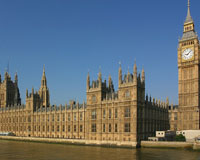 Property shares have been sent soaring by the shock Conservative election win, as markets react to the death of the mansion tax and Labour’s rent controls.
Property shares have been sent soaring by the shock Conservative election win, as markets react to the death of the mansion tax and Labour’s rent controls.
Residential landlords and agents in particular have led huge gains in the FTSE all share index, according to EG finance reporter Mike Cobb.
While the abating threat of increased property taxation promised by the Labour Party has lifted property shares in particular, the markets more widely were relieved by the clear outcome of the vote, a sentiment shared by several leading industry figures, who have gave their immediate reactions to EG policy reporter Alex Horne.
The fact that the Conservatives should now be able to run a stable government also gives us much more certainty about the likely policy agenda for property.
Few gave much credence to manifesto promises which seemed certain to be jettisoned in coalition negotiations, so EG head of news and finance David Hatcher has rounded up the key Tory pledges for property which in theory they should now be in a position to deliver.
We also now know with a great deal more certainty the ministers with whom the property industry must build or renew relationships, subject of course to a likely significant reshuffle of the Cabinet now it will be a fully blue team, so here EG news editor Jack Sidders rounds up the individual constituency battles for all of the key ministers and shadow ministers with built environment related briefs.
And we’ve also followed up our look last month at the key election candidates who have links to the property industry in their previous jobs.
Clearly, however, there is still much we don’t know, so we have assembled a roster of industry experts to read the tea leaves, starting with EG Editor Damian Wild, who ponders the implications of a Tory government for Britain’s membership of the EU.
Wetherell chief executive and Mayfair expert Peter Wetherell gives his views on what the result means for the prime residential market.
Curtin & Co’s Martin Curtis warns the celebrations for property could be short-lived.
Weber Shandwick corporate financial and public affairs chairman Jon McLeod explains the five certainties that David Cameron now faces.
And IPD’s Phil Tily says it doesn’t really matter who has won anyway because property returns will be influenced far more by global macro economic forces.











